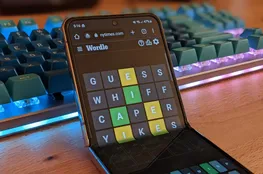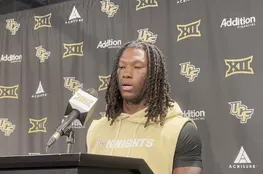‘Squatting’ typically treated as a civil matter in Maryland, but could rise to criminal. An underground social media network that publicly advertises unoccupied properties as squatter housing options is likely a form of crime, according to a Baltimore prosecutor. Shari Greene, chief of the Economic Crimes Division of the Baltimore City State’s Attorney’s Office, told Spotlight on Maryland that, while squatting is currently a civil matter in the state, aspects of the online industry could reach criminal levels. "It’s the same philosophy of creating a theft scheme, theft by deception," Green said. "If you can use social media to identify persons that are more open to what you’re pitching, you just have a bigger audience, it just expands your audience and gives you more opportunities." The practice of seizing an empty property, changing the locks and advertising it for rent on social media sites including Instagram is on the rise, according to some Maryland lawmakers, including Del. Ryan Nawrocki, a Baltimore County Republican who said his office has seen a rise in complaints. "You have circumstances where you have increased gang activity in properties, increased nuisance issues like rats," Del. Nawrocki said. "You can have fire risks. All kinds of really bad things can come to a community with these types of properties."
Although Greene’s office has not received a significant number of criminal complaints from citizens or law enforcement agencies regarding online social media squatter networks, she said that her team remains consistently vigilant. "If a crime is clearly denoted and criminal action is necessary, we have no problem calling a person to accountability," Green said. "State’s Attorney [Ivan Bates] has made it very clear that he is tough on crime, he believes in accountability,” Greene said. “That goes for scammers. Just because there is no blood-let, doesn’t mean there is no pain and no loss and no trauma." Victims of fraud and deception are suffering from the trauma of it. Often, they have ... saved for a lifetime, and now they have suffered a deep and great loss,” Green added.
Officials suspect a blaze that destroyed the 2200 block of Fulton Avenue in Baltimore in March originated in a rowhome that was illegally occupied by squatters. The city continues to actively clear the debris from the four-alarm fire that displaced residents and a long-standing business. Del. Nawrocki also referred to a federal raid in April 2024 on a Bronx house that had been taken over by squatters. The New York Police Department reported at the time that they arrested seven individuals inside the property, including two Venezuelan migrants, on various gun and drug trafficking charges. The squatter house raid occurred across the street from a Bronx school.
The squatter house raid occurred across the street from a Bronx school. After a spike in squatting last year in the state, New York Governor Kathy Hochul signed an action as part of the 2024 state budget that redefined the legal definition of squatters, delivering a severe blow to the online networks profiting from their placement. "As part of the historic action to address the housing crisis in the [fiscal year] 2025 budget, Gov. Hochul reached an agreement to reinforce existing law to make clear that squatters are not tenants, supporting property owners statewide,” Gov. Hochul’s office said in a press release. The New York amendment modified state law to clarify that a “tenant should not include a squatter,” in order to eliminate barriers to law enforcement involvement instead of civil litigation.
Spotlight on Maryland asked Greene whether unlawfully selling or renting another person’s home through scamming or deception is a prevalent illicit industry in Baltimore. "Well, all over our nation, it has been a tremendous problem. Consumer agencies trying to advocate for consumer rights are reporting so many reports of people losing hundreds of thousands of dollars,” Green said. "Our city is no different,” Greene added.
























